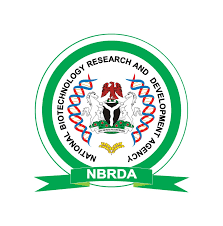NBRDA Debunks Harm Claims in GMO Transfers
The National Biotechnology Research and Development Agency (NBRDA) has debunked claims that gene transfers in Genetically Modified Organisms (GMOs), such as crops, are harmful.
Dr. Rose Gidado, Director of the Agricultural Biotechnology Department at NBRDA, made this assertion during an interview on Monday in Abuja.
Dr. Gidado emphasised the importance of approaching the topic of gene transfer from a scientific, evidence-based perspective rather than relying on speculation.
She explained that the technology of genetic engineering began after the discovery of the deoxyribonucleic acid (DNA) structure, which is consistent across all living organisms, both plants and animals, except for viruses.
DNA carries the genetic information necessary for the development and functioning of an organism.
Dr. Gidado described gene editing as the process of transferring genes from one living organism to another.
“We believe the trait that you want is present in another living organism,” she said.
According to Dr. Gidado, when a specific gene is introduced into a host plant, the gene establishes itself, and the desired trait begins to manifest.
For example, if a gene for drought or flood tolerance is transferred, the resulting crop becomes tolerant to those conditions.
Read Also: AATF Highlights Safety, Criticizes Anti-GMO Stance
Dr. Gidado highlighted that genes from plants or animals are often altered for specific beneficial reasons.
She noted that the genetically modified beans (Bt cowpea) contain a gene called 1Ab, which provides protection against the Maruca insect pest, a major threat to beans.
Similarly, the pink bollworm is a significant pest of cotton, and genetic modifications can offer protection against such pests.
She advocated for the use of GMO seeds for improved yield, pointing out that conventional seeds require pesticide sprays up to 10 times. In contrast, genetically modified seeds reduce the frequency of pesticide sprays while increasing yield.
Dr. Gidado assured that “before any GMO product is approved for consumption in Nigeria, it undergoes a detailed risk assessment process, evaluated by experts in public health, molecular biology, ecology, and toxicology.”
NAN


Comments are closed.